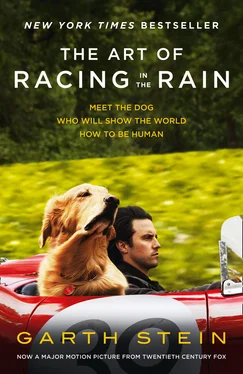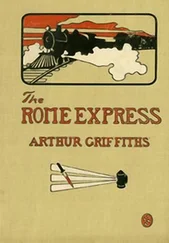Denny stopped. He wouldn’t hit her. No matter what. Just as he wouldn’t hit me. He hadn’t hit me, I know, even though I could feel the pain of the blow. He had hit the demon, the evil zebra, the dark creature that came into the house and possessed the stuffed animal. Denny believed the evil demon was in me, but it wasn’t. I saw it. The demon had possessed the zebra and left me at the bloody scene with no voice to defend myself—I had been framed.
“We’ll get new animals, baby,” Eve said to Zoë. “We’ll go to the store tomorrow.”
As gently as I could, I slunk toward Zoë, the sad little girl on the floor, surrounded by the rubble of her fantasy world, her chin tucked into her chest, tears on her cheeks. I felt her pain because I knew her fantasy world intimately, as she allowed me to see the truth of it, and often included me in it. Through our role-playing—silly games with significant telltales—I saw what she thought about who she really was, her place in life. How she worshipped her father and always hoped to please her mother. How she trusted me but was afraid when I made faces at her that were too expressive and defied what she’d learned from the adult-driven World Order that denies animals the process of thought. I crawled to her on my elbows and placed my nose next to her thigh, tanned from the summer sun. And I raised my eyebrows slightly as if to ask if she could ever forgive me for not protecting her animals.
She waited a long time to give me her answer, but she finally gave it. She placed her hand on my head and let it rest there. She didn’t scratch me. It would be a while before she allowed herself to do that. But she did touch me, which meant she forgave me for what had happened, though the wound was still too raw and the pain was still too great for her to forget.
Later, after everyone had eaten and Zoë was put to bed in her room that had been cleaned of the carnage, I found Denny sitting on the porch steps with a drink of hard liquor, which I thought was strange because he hardly ever drank hard liquor. I approached cautiously, and he noticed.
“It’s okay, boy,” he said. He patted the step next to him and I went to him. I sniffed his wrist and took a tentative lick. He smiled and rubbed my neck.
“I’m really sorry,” he said. “I lost my mind.”
The patch of lawn behind our house was not big, but it was nice in the evening. It was rimmed by a dirt strip covered with sweet-smelling cedar chips where they planted flowers in the spring, and they had a bush in the corner that made flowers that attracted the bees and made me nervous whenever Zoë played near it, but she never got stung.
Denny finished his drink with a long swallow and shivered involuntarily. He produced a bottle from nowhere—I was surprised I hadn’t noticed it—and poured himself another. He stood up and took a couple of steps and stretched to the sky.
“We got first place, Enzo. Not ‘in class.’ We took first place overall. You know what that means?”
My heart jumped. I knew what it meant. It meant that he was the champion. It meant he was the best!
“It means a seat in a touring car next season, that’s what it means,” Denny said to me. “I got an offer from a real, live racing team. Do you know what an offer is?”
I loved it when he talked to me like that. Dragging out the drama. Ratcheting up the anticipation. I’ve always found great pleasure in the narrative tease. But then, I’m a dramatist. For me, a good story is all about setting up expectations and delivering on them in an exciting and surprising way.
“Getting an offer means I can drive if I come up with my share of sponsorship money for the season—which is reasonable and almost attainable—and if I’m willing to spend the better part of six months away from Eve and Zoë and you. Am I willing to do that?”
I didn’t say anything because I was torn. I knew I was Denny’s biggest fan and most steadfast supporter in his racing. But I also felt something like what Eve and Zoë must have felt whenever he went away: a hollow pit in my stomach at the idea of his absence. He must have been able to read my mind, because he gulped at his glass and said, “I don’t think so, either.” Which was what I was thinking.
“I can’t believe she left you like that,” he said. “I know she had a virus, but still.”
Did he really believe that, or was he lying to himself? Or maybe he just believed it because Eve wanted him to believe it. No matter. Had I been a person, I could have told him the truth about Eve’s condition.
“It was a bad virus,” he said more to himself than to me. “And she couldn’t think.”
And suddenly I was unsure: had I been a person, had I been able to tell him the truth, I’m not sure he would have wanted to hear it.
He groaned and sat back down and filled his glass again.
“I’m taking those stuffed animals out of your allowance,” he said with a chuckle. He looked at me then, took my chin with his hand.
“I love you, boy,” he said. “And I promise I’ll never do that again. No matter what. I’m really sorry.”
He was blathering, he was drunk. But it made me feel so much love for him, too.
“You’re tough,” he said. “You can do three days like that because you’re one tough dog.”
I felt proud.
“I know you’d never do anything deliberately to hurt Zoë,” he said.
I laid my head on his leg and looked up at him.
“Sometimes I think you actually understand me,” he said. “It’s like there’s a person inside there. Like you know everything.”
I do , I said to myself. I do .
12
Eve’s condition was elusive and unpredictable. One day she would suffer a headache of crushing magnitude. Another day, debilitating nausea. A third would open with dizziness and end with a dark and angry mood. And these days were never linked together consecutively. Between them would be days or even weeks of relief, life as usual. And then Denny would get a call at work, and he would run to Eve’s assistance, drive her home from her job, impose on a friend to follow in her car, and spend the rest of the day watching helplessly.
The intense and arbitrary nature of Eve’s affliction was far beyond Denny’s grasp. The wailings, the dramatic screaming fits, the falling on the floor in fits of anguish. These are things that only dogs and women understand because we tap into the pain directly, we connect to pain directly from its source, and so it is at once brilliant and brutal and clear, like white-hot metal spraying out of a fire hose, we can appreciate the aesthetic while taking the worst of it straight in the face. Men, on the other hand, are all filters and deflectors and timed release. For men, it’s like athlete’s foot: spray the special spray on it, they say, and it goes away. They have no idea that the manifestation of their affliction—the fungus between their hairy toes—is merely a symptom, an indication of a systemic problem. A candida bloom in their bowels, for instance, or some other upset to their system. Suppressing the symptom does nothing but force the true problem to express itself on a deeper level at some other time. Go see a doctor, he said to her. Get some medication. And she howled to the moon in reply. He never understood, as I did, what she meant when she said that medication would only mask the pain, not make it go away, and what’s the point of that. He never understood when she said that if she went to a doctor, the doctor would only invent a disease that would explain why he couldn’t help her. And there was so much time between episodes. There was so much hope.
Denny was frustrated by his impotence, and in that regard, I could understand his point of view. It’s frustrating for me to be unable to speak. To feel that I have so much to say, so many ways I can help, but I’m locked in a soundproof box, a game show isolation booth from which I can see out and I can hear what’s going on, but they never turn on my microphone and they never let me out. It might drive a person mad. It certainly has driven many a dog mad. The good dog that would never hurt a soul but is found one day having eaten the face of his master as she slept deeply under the influence of sleeping pills? There was nothing wrong with that dog except that his mind finally snapped. As awful as it sounds, it happens; it’s on the TV news regularly.
Читать дальше











![Hubert Bancroft - The Native Races [of the Pacific states], Volume 5, Primitive History](/books/749157/hubert-bancroft-the-native-races-of-the-pacific-s-thumb.webp)
![Hubert Bancroft - The Native Races [of the Pacific states], Volume 1, Wild Tribes](/books/750126/hubert-bancroft-the-native-races-of-the-pacific-s-thumb.webp)